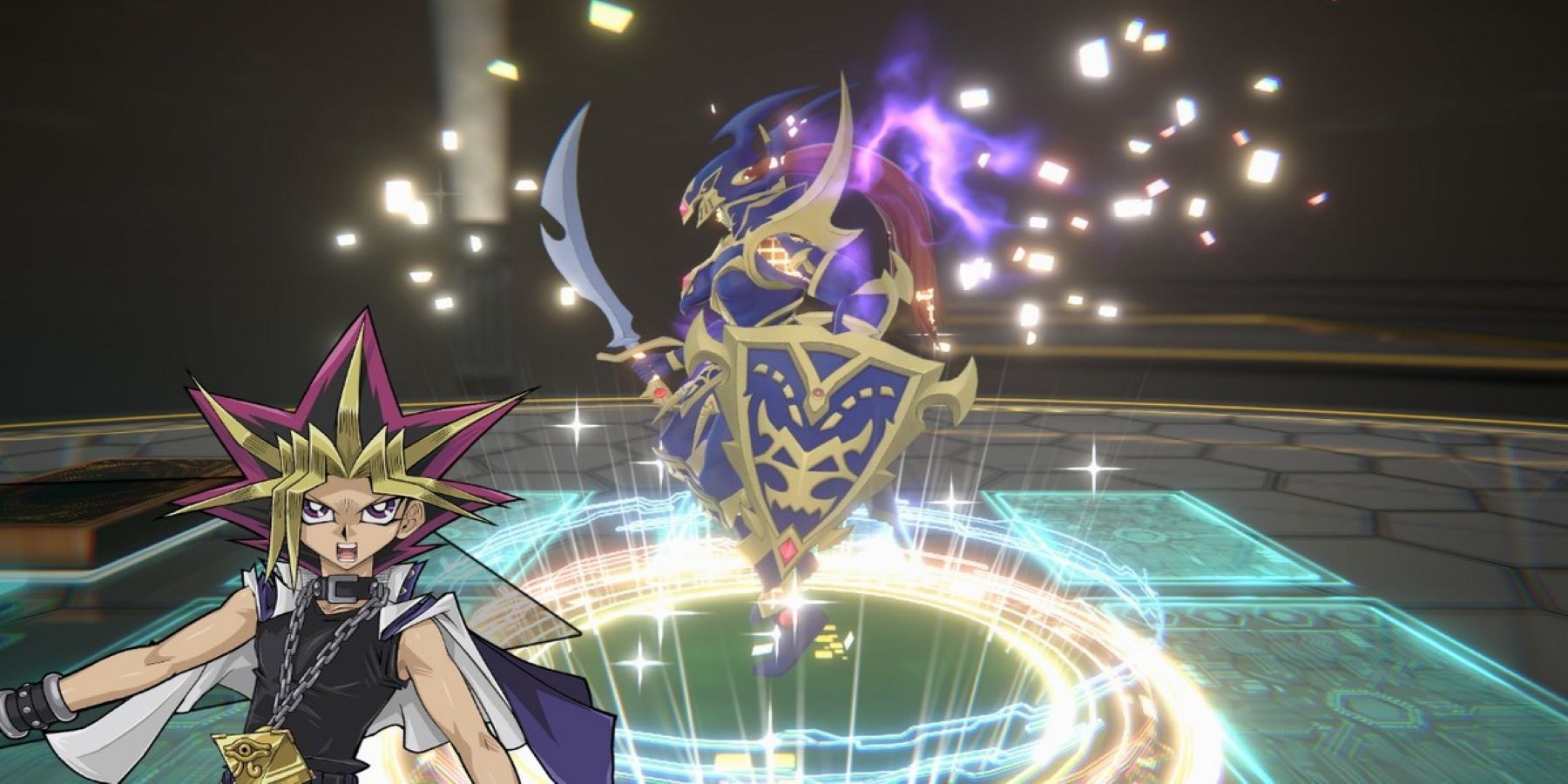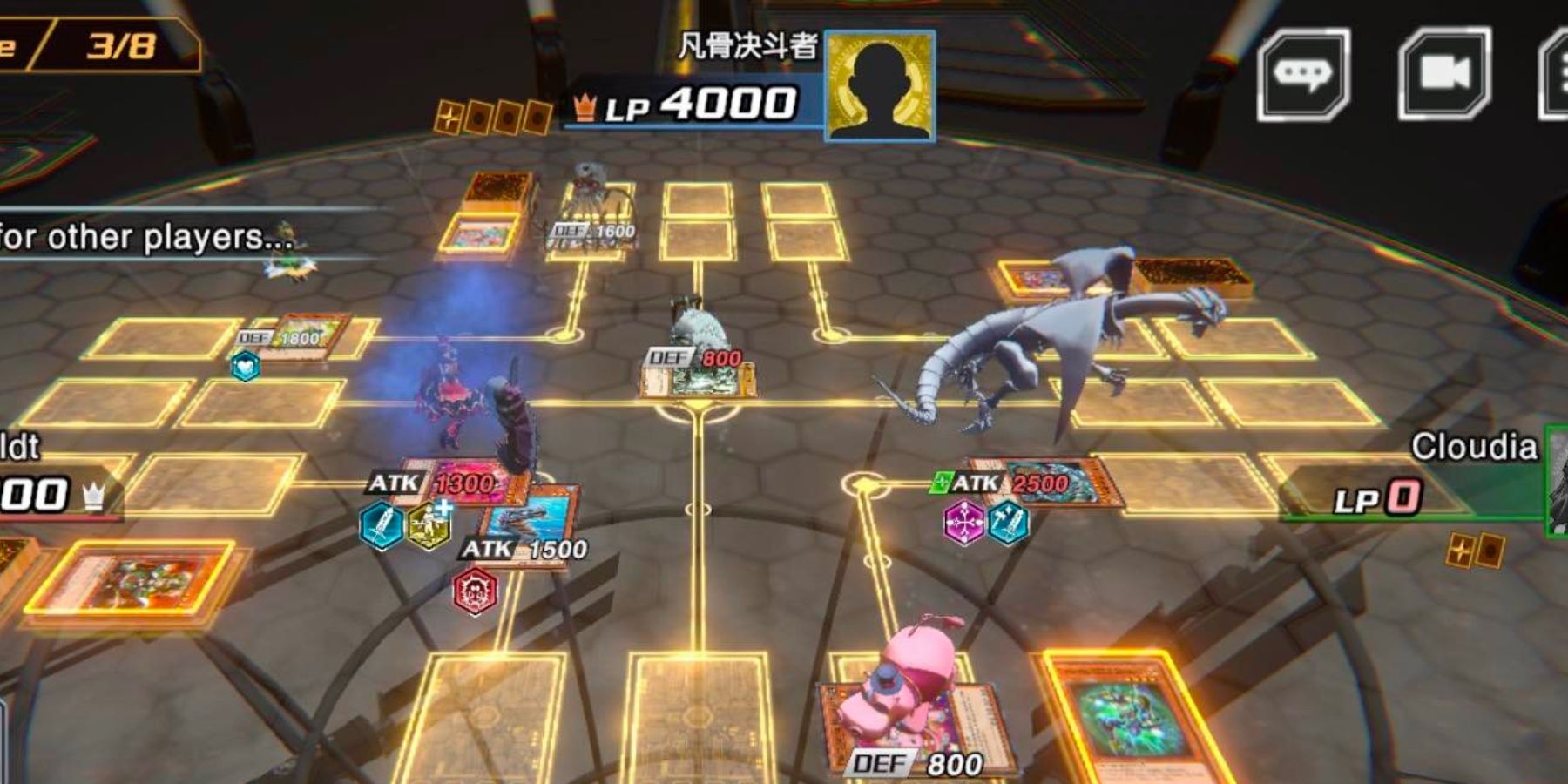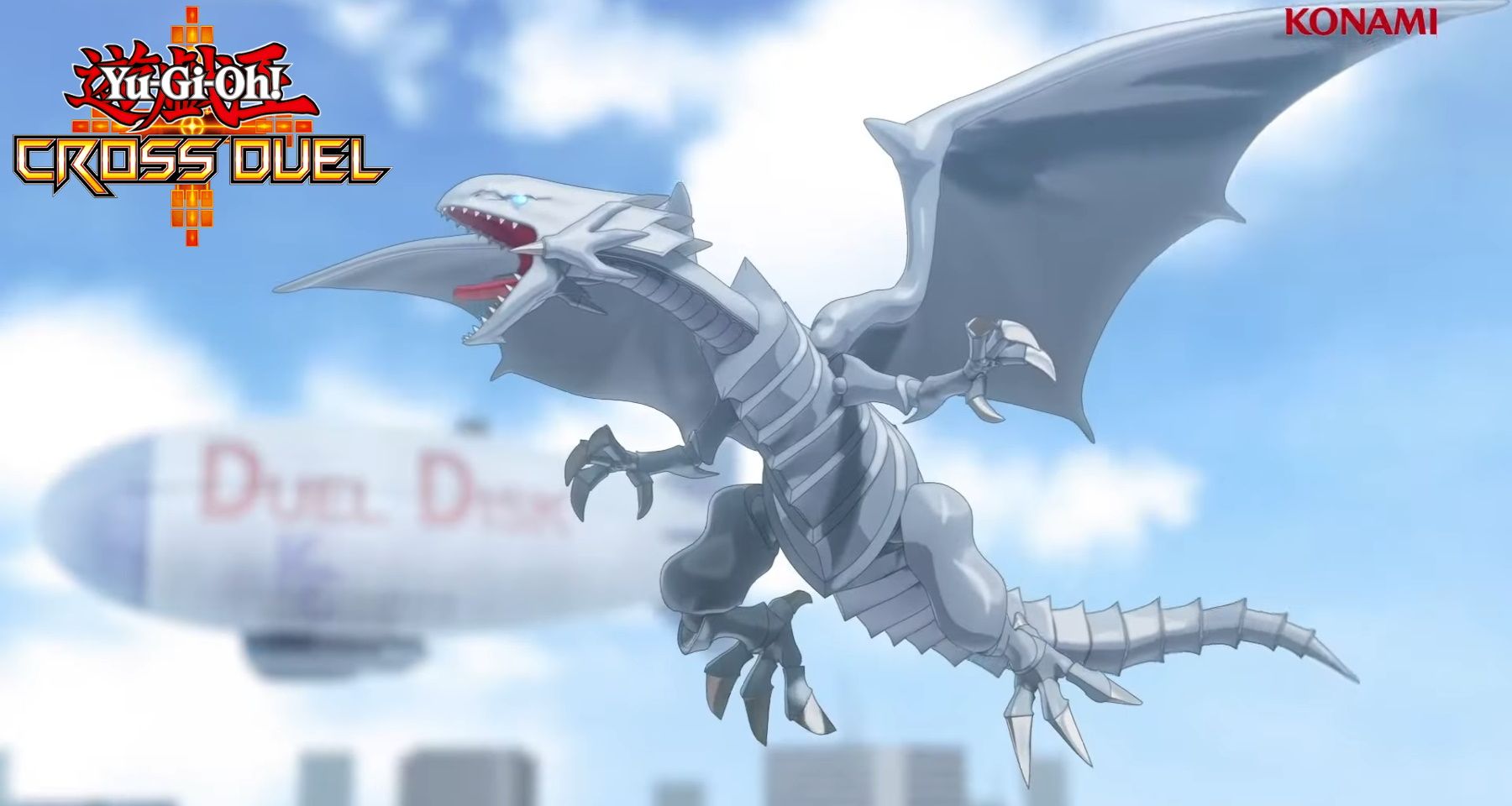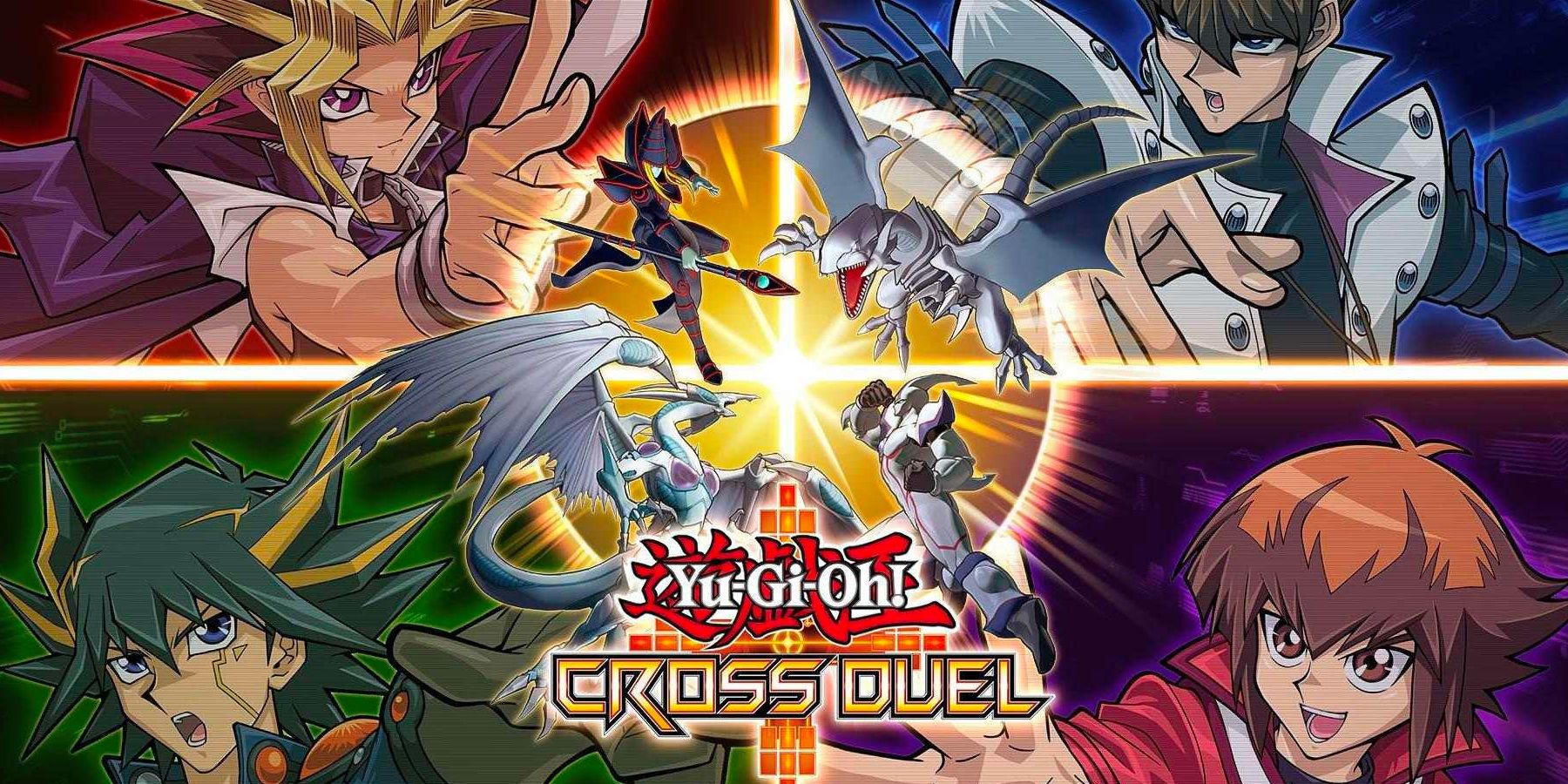Yu-Gi-Oh Cross Duel is the latest spin-off of the original Yu-Gi-Oh trading card game, creating a new format that could influence the original card game if it takes off. With the passing of Yu-Gi-Oh creator Kazuki Takahashi, the series is now entering into an era far beyond the creative vision that birthed it, and the game itself is following suit.
The Yu-Gi-Oh card game has never shied away from changes to its formula, and for a while, it introduced an extra deck monster alongside its new series releases, beginning with synchro monsters and, at the time of writing, ending with link monsters. These sometimes brought huge shifts to the rules and eventually led to new play formats, which include Speed Duels, Rush Duels, and now Cross Duels.
A Remix On An Old Theme
The bones of the Cross Duel have their roots in the Speed Duel, which itself is a stripped down version of the original format of Yu-Gi-Oh as seen in games like Yu-Gi-Oh Master Duel, which even bans and limits Yu-Gi-Oh cards for the same reasons as the physical game. Like Speed Duels, Cross Duels give each player three monster zones and three spell/trap zones, as well as 4000 life points for each player. That, however, is where the similarities end.
Each monster zone is linked to another player: one to the right, one ot the left, and one straight across. When a player has a monster in attack mode, it travels one zone towards the enemy player's monster zone at the start of the Battle Phase. Monsters that encounter each other battle, reducing their Atk points (or Def points if one monster is in defense mode) by their opponent's total. When Atk or Def reaches 0, a monster is destroyed. Monsters that reach their opponent's zone inflict damage to them every turn equal to their (now possibly reduced) Atk, and healing their owner for the same amount. This puts everything on a delay, even instant wins, meaning questions like is it worth getting Exodia take on entirely new dimensions.
The result is a game that looks like Yu-Gi-Oh and sounds like Yu-Gi-Oh, but only very loosely plays like Yu-Gi-Oh. Even the monsters are different: they have no effects to start with, but can equip different skills earned through a skill tree that can be unlocked with in-game materials. In addition to a Yu-Gi-Oh Master Duel crafting system, players can also melt down extra copies of cards to help unlock skills. They don't even have special monster types like Fusion and Synchro to start with, and on earning them, they still stay in the main deck (there's no Extra Deck). Despite the many levels of separation between this game and regular duels, or even Speed Duels, some elements could make their way back and revolutionize those formats.
Consistent Cards
When creating an account, each player can select from one of several Ultra Rare monsters to obtain and be their Ace. Others are obtainable through packs, but it's pretty rare. Ace monsters have their own unique skills in their skill tree and each deck can only have one. However, arguably the most important thing about Ace monsters is that a player's Ace always starts in their hand. There's never a question of if it will be drawn, as it's always there, and always having the strongest monster card in a deck at a player's fingertips can be a huge boon.
In the standard Yu-Gi-Oh format, there are cards that earn the unofficial title of Staple. These are cards that are so powerful with such a small activation requirement that they become auto-included in most decks and define the meta during their lifecycle and beyond. Examples include old classics like "Raigeki" and "Monster Reborn", relatively newer cards like "Ash Blossom & Joyous Spring" and "Infinite Impermanence", and the infamous "Maxx-C." Most players include these cards for guaranteed combo, disruption, and/or comeback potential. Now: imagine if, like an Ace monster, a player could choose one or more cards to start the duel in their hand. The most expensive Yu-Gi-Oh cards look a lot cheaper when there's always a guaranteed return on investment in every duel.
This change could alter the meta landscape of Yu-Gi-Oh a great deal, since it would no longer be a question of "if" one's opponent had a Staple ready to go, but rather "what" staple(s) they had prepared and "when" they would commit those cards. Once every player is thinking about "when" their foe is going to burn their "Maxx-C" or "Monster Reborn" instead of wondering whether they have it at all, the game becomes more intense. Players are not fond of "Maxx-C" being unbanned in Yu-Gi-Oh Master Duel, but in a game where every player is guaranteed to have one and only one "Maxx-C" to spend from the start of the game, everything gets both more tense and, hopefully, less based on chance.
There's one more element that this extends to in Cross Duel: the center-lane card. At the start of the duel, there's a powerful card at the place where all the middle monster zones meet. The first player to have a monster standing triumphant in that middle zone gets that card to their hand. Something similar could be adapted to regular duels, where the first player to meet a preset requirement in the duel could obtain a powerful, pre-determined card. This could be a race for something like an overpowered Trap card or a game changing Spell that would influence how players use their early turns.
The Potential Impact of Lasting Monster Damage
The second element that could make its way back to standard format Yu-Gi-Oh is lasting monster damage. As it currently stands in standard Yu-Gi-Oh, monsters are either destroyed through battle, or not. Cross Duel's Atk/Def reduction through battle could dynamically shift how combat works in Yu-Gi-Oh, shifting focus from surmounting a single wall of a monster to chipping away at it until it falls. This would lead to a seriously revised meta and updated Yu-Gi-Oh banlist, and would shift the game toward something like Magic: The Gathering. While it likely won't become an official rule outside of Cross Duel, it would be an interesting mechanic for its own standalone format.
Yu-Gi-Oh! Cross Duel is available now for mobile devices.




